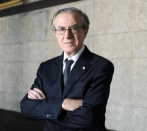Impacts of COVID-19 pandemic
The impacts of the COVID-19 pandemic have been felt by scientists and scholars worldwide, as universities and industries have closed their campuses and standard funding and publishing pipelines have slowed down or shifted priorities. These impacts, however, are not felt equally by everyone; both institutions and individuals in developing countries often have fewer resources to support remote learning and working, and women often have different responsibilities that make working from home a bigger challenge than for men.
To describe the true impact of the pandemic on women scientists in developing countries, many members have already responded to an OWSD survey on the pandemic (June 2020), answering questions about their work and studies, family and home lives, as well as their mental wellbeing. A report and analysis of the survey is provided here. More in-depth accounts from members have also been published on the OWSD website here.
While sobering, these stories also inspire hope: from a Sudanese molecular biologist who led an initiative to make ventilators using 3D printers, to a Sri Lankan biochemistry professor who volunteered her lab for diagnostic testing, to the professors in a Palestinian university who organized a special course on COVID-19 to teach students the principles of epidemiology, OWSD members are applying their knowledge and skills to helping their countries, and the world, rise to this challenge.
Invited Presentation: Alberto Quadrio Curzio
Alberto Quadrio Curzio will give a short presentation, in discussion with OWSD Coordinator Tonya Blowers, on an upcoming special issue of Economia Politica. Journal of Analytical and Institutional Economics, focusing on 'Pandemics, Women and the Global South' which includes articles by many outstanding personalities as well as a chapter with details from the OWSD survey of its members.
Professor Quadrio Curzio’s introduction will be followed by 3 compelling stories from OWSD members, describing their own personal and professional responses to COVID-19.





